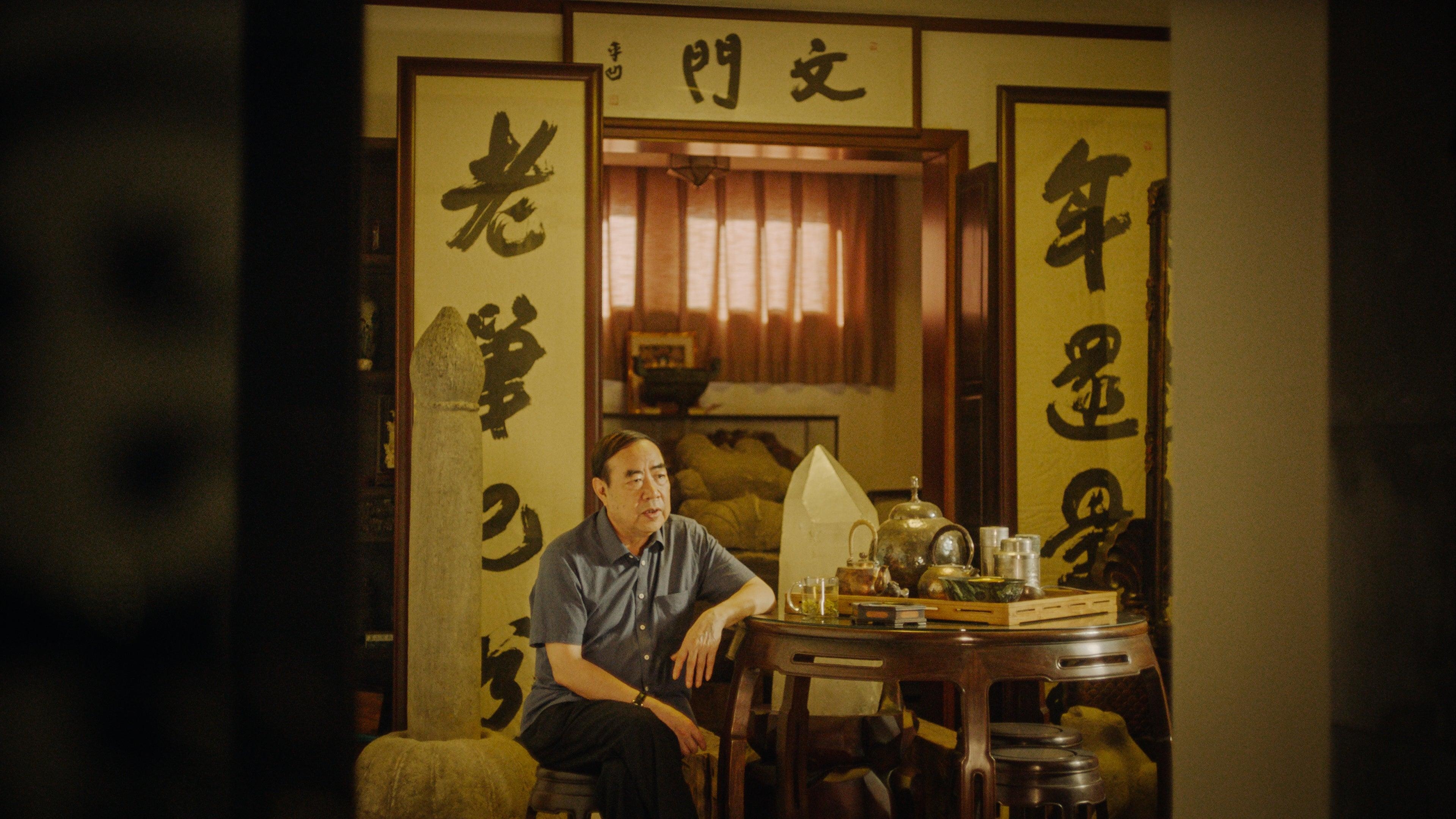The great director Jia Zhangke profiles literary heroes in Swimming Out Till The Sea Turns Blue

The director Jia Zhangke has spent so long as an artful chronicler of China’s changing present and disappearing past that it has become all too easy to take his work and talent for granted. Yet no one else has a keener eye for moments in cultural time—for the way a pop song, a car, or a bootleg video can encapsulate not merely the fashions of an era but such nebulous concepts as the future. A Jia film can be ironic or melancholy, satirical or sentimental, but it is always closely observed. In Swimming Out Till The Sea Turns Blue, his first foray into feature-length documentary filmmaking in a decade, he ruminates on themes close to his heart—among them, the relationship between telling stories and living through history.
Nominally, the film is about four Chinese writers of different generations, three living (Jia Pingwa, Yu Hua, Liang Hong), one dead (Ma Feng). That Jia has literary affinities has long been obvious from the structures of his films, whether it’s the novelistic, decades-spanning narratives of Platform, Ash Is Purest White, and Mountains May Depart, or the anthology format of A Touch Of Sin. He is not here, however, to pose questions about literature per se, or to peer into the writing process. That much is obvious from the first section, which introduces Ma, a writer who hailed from Jia’s home province of Shanxi, through interviews with a couple of nonagenarians who remember the author hazily as an organizer in their rural community in the late 1940s and early ’50s.
Across the extended, handsomely shot sit-down interviews (with Ma’s daughter and the three other writers), what emerges is a fragmentary oral history of Chinese rural life across several transformative decades of the 20th century: family stories, tragedies, remembered slogans, the particulars of trying to grow crops in alkaline soil or coming of age as the son of a declared “counterrevolutionary.” Sprinkled throughout are interludes that look like they belong at the edges of a Jia film, in which the telephoto lens of his longtime cinematographer, Yu Lik-Wai, gazes upon trains, cafeterias, and card games. There’s even the requisite needle drop of a once-ubiquitous hit: the Andrea Bocelli and Sarah Brightman crossover single “Time To Say Goodbye.” (Curiously, this is the second nonfiction film in a year to use the song; it also appeared in The Mayor.)
Still, this is largely a film of interviews, occasionally engrossing, sometimes rambling, and diffuse in a manner specific to minor works by major filmmakers. In a coda, Jia interviews the teenage son of Liang Hong, the youngest of the profiled writers, by a river described in one of his mother’s books. A pimply teen with a pair of wireless headphones dangling around his neck, he no longer remembers his grandparents’ dialect and plans to study physics. The loss of language, the generational divide—these are the themes of a Jia drama. As is, incidentally, the idea that a brighter future sometimes means a dimmer past. Perhaps illuminating the latter is what books are for.